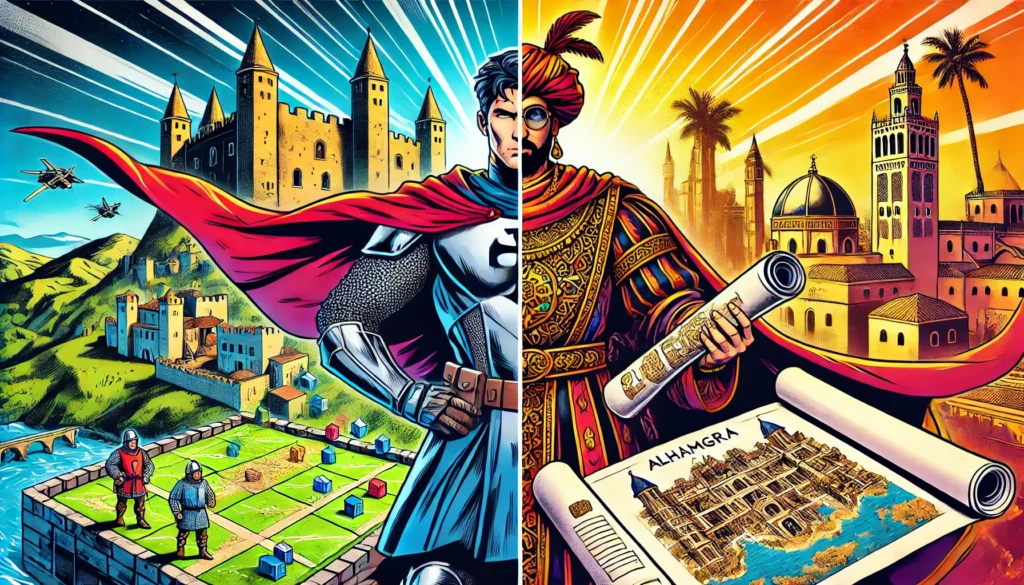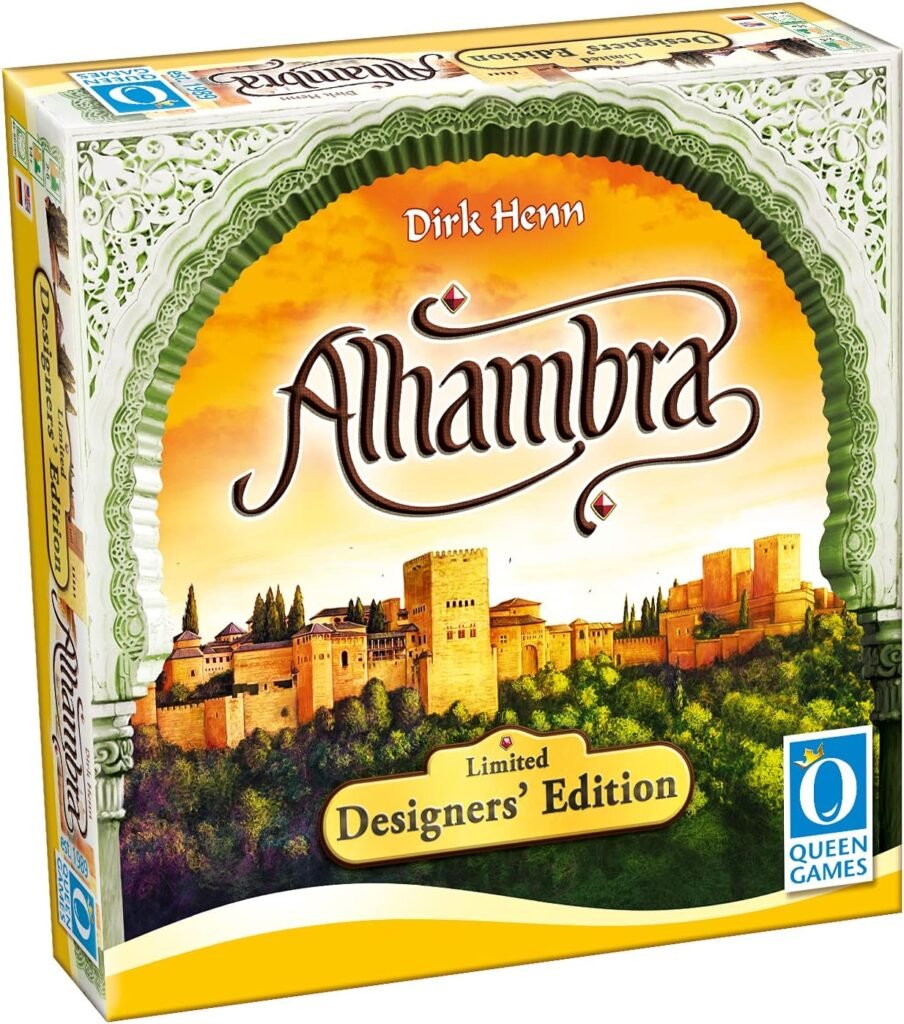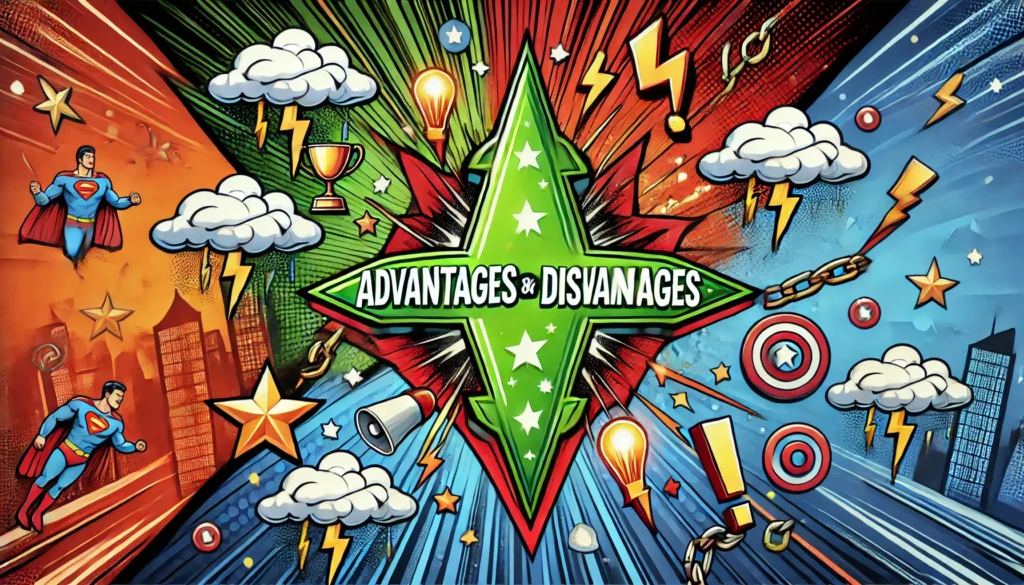
A Dive into the World of German Board Games
Ah, German board games, the delightful realm where cunning strategy meets more delight than finding a pretzel at the bottom of your snack drawer. In a landscape teeming with dice and cards, these games stand out like lederhosen at a formal event. Renowned for their depth and clever mechanics, German board games invite you to channel your inner strategist, all while allowing the occasional, satisfying table-flip. Today, we’re setting the stage for a face-off between two board game heavyweights: Carcassonne and Alhambra. Both have snagged the prestigious Spiel des Jahres award, essentially the Oscar of the board game world, minus the red carpet and awkward acceptance speeches.
Carcassonne takes you on a journey through medieval landscapes where you’ll build cities, roads, and monasteries with your trusty meeples. It’s like urban planning but without the zoning permits. With its straightforward rules and tactical depth, Carcassonne is a crowd-pleaser that keeps you on your toes—or at least your thumbs.
Meanwhile, Alhambra invites you to construct a majestic palace complex, complete with exotic tiles and a bit of currency juggling. Imagine being a financial advisor, but with a penchant for architecture. You’ll need the right currency to buy tiles, adding a strategic twist that keeps things interesting. It’s like balancing your budget but way more fun and far less stressful.
So, which game has the edge? Carcassonne is easy to pick up and endlessly replayable, perfect for family game night. Alhambra, with its added complexity and theme, offers a richer experience for those who enjoy a bit of financial trickery in their tile-laying. Stick around as we dive deeper and decide which game deserves the crown!
Getting to Know Carcassonne
Ready to take a trip back to medieval times without leaving your living room? Enter Carcassonne, the board game that makes laying tiles more thrilling than watching your favorite TV series finale. This gem whisks you away to a time when building cities, roads, and cloisters was the ultimate form of entertainment. Players get to place their meeples on the board, which sounds like babysitting, but is actually way more fun.
Ever wonder why Carcassonne is so beloved? With over 12 million copies sold and generating a cool $400 million in revenue, it’s clear that Carcassonne is beloved worldwide. It’s like the Swiss Army knife of board games: easy to pick up, hard to put down, and incredibly versatile. One moment you’re a humble city planner, the next you’re outwitting your opponents like a medieval mastermind.
What’s even better is that the game’s mechanics are as straightforward as they are satisfying. It receives an average rating of 7.41 from over 119,000 ratings on BoardGameGeek, proving that it’s quite the crowd-pleaser. Think of it as a puzzle you get to design yourself, making every playthrough unique. As Karim Lopez, a board game conference organizer, notes, Carcassonne is like a puzzle on the table, but you get to choose what the picture looks like, making it appealing to both new gamers and experienced players alike.
And here’s a little dad joke to keep things light: Why do board games never get cold? Because they’ve got so many layers!

The Upsides and Downsides of Carcassonne
Carcassonne is the board game equivalent of comfort food: simple to start, but with layers of strategy that keep you coming back for more. It receives an average rating of 7.41 from over 119,000 ratings on BoardGameGeek, proving that it’s quite the crowd-pleaser.
Let’s break it down with some pros and cons:
1. Easy to Learn: You won’t need a PhD to grasp the rules. Seriously, even your dog could probably figure it out—if they could read.
2. Endless Replayability: Each game is a new adventure, kind of like opening a new bag of chips. You never know what you’ll get, but it’s always good.
3. Quick Setup: No need for a degree in IKEA assembly. You can get this game rolling faster than you can say “medieval city.”
1. Limited Player Interaction: Sometimes it feels like you’re more focused on your own kingdom than anyone else’s. It’s like being at a party but only talking to the punch bowl.
2. Luck Factor: The tile you draw can make or break your strategy, which might make you feel like you’re at the mercy of the Board Game Gods.
3. Expansion Overload: There are so many expansions, it’s like trying to keep up with all the superhero movies. Fun but overwhelming!
Still, Carcassonne’s charm is undeniable. It’s got that classic vibe that keeps players coming back like a favorite old movie. And let’s not forget the dad joke to round things off: Why don’t board games get lost? Because they always follow the rules!
Introducing Alhambra
Now, let’s shift our gaze to Alhambra, where you’re not just building cities; you’re crafting a palace complex so grand that even royalty might get envious. This game blends tile placement with a splash of currency management, creating a unique gameplay experience that’s like juggling balls while riding a unicycle—except here, you’re handling coins and tiles. Picture this: players collect money cards to purchase tiles and build the most splendid Alhambra imaginable. The kicker? You need the right currency to snag each tile, adding a layer of strategy that’s both refreshing and challenging. It’s like managing a medieval piggy bank, but without those pesky overdraft fees.
One of the standout features of Alhambra is its variety. Each game feels fresh, like biting into a crisp apple that you’ve somehow forgotten was in your fridge. With multiple strategies to explore, this game is a treat for those who love to plan every move like a chess grandmaster. But be careful! The sheer number of choices can lead to analysis paralysis, where players might spend more time thinking than playing—kind of like a cat deciding whether or not to chase a laser pointer.
For those who thrive on deep strategy and the thrill of planning out the perfect palace, Alhambra is a feast for the mind, akin to savoring a perfectly brewed cup of German coffee. It’s complex enough to keep you engaged but straightforward enough not to scare away newcomers. And remember, why don’t board games ever get lost? Because they always follow the rules!

The Advantages and Disadvantages of Alhambra
Alhambra shines brightly with its unique blend of tile placement and currency management, like a financial advisor moonlighting as an architect. Here’s the lowdown on its strengths and weaknesses:
1. Variety of Strategies: Alhambra offers multiple ways to win, making each game as unpredictable as finding a surprise $20 bill in your old jeans.
2. Currency Twist: The need to collect the right currency adds a fun layer of strategy. It’s like Monopoly, but without the endless fights over who gets to be the top hat.
3. Replayability: Each game feels fresh, like opening a new box of chocolates—you never know what you’re gonna get, but it’s always delightful.
1. Analysis Paralysis: With so many choices, you might spend more time thinking than playing. It’s like trying to pick the best spot for your Christmas tree and ending up with it still in the box.
2. Setup Time: Getting Alhambra ready can be a bit of a hassle, like assembling IKEA furniture but without the tiny Allen wrench.
3. Less Player Interaction: Sometimes you’re so focused on your palace that you forget there are other people at the table. It’s like being at a dinner party and only talking to your plate.
For those who love deep strategy and a bit of financial juggling, Alhambra is a treat. Just be prepared for the occasional analysis paralysis, like deciding which pizza toppings to order when you’re really, really hungry.
And for a little dad joke to keep things light: Why do board games never tell secrets? Because they always follow the rules!

Lighthearted Dad Jokes to Brighten Things Up
What’s a board game blog without some classic dad jokes? Let’s sprinkle some humor into our discussion, shall we? Why don’t skeletons fight over board games? They don’t have the guts! Here’s one for the chess enthusiasts: Why did the chess player bring a suitcase to the game? Because he wanted to pack a pawn! And why was the board game so bad at playing hide and seek? It always gave away its position! Now, let’s take a moment to appreciate our board games. Why do board games make terrible singers? Because they always go off-key! Speaking of keys, why did the computer board game get promoted? It excelled at taking ‘board’ meetings! And here’s a joke to keep you rolling: Why don’t board games ever gossip? Because they always keep things by the book!
These jokes might be as cheesy as a slice of Gouda, but they’re sure to bring a smile to your face—or at least a good-natured groan. So next time you gather around the table, remember: the best way to break the ice is with a little humor. After all, why did the board game cross the road? To get to the winning side!
As you ponder over your next game choice, keep these jokes in your back pocket for a lighthearted touch to any game night. They might not help you win, but they’ll surely make the experience a lot more fun. So go ahead, share a laugh, and let the games begin!

The Showdown: Carcassonne vs Alhambra
Alright, folks, it’s the ultimate face-off between Carcassonne and Alhambra! It’s like a medieval WWE match, but with tiles and strategy. Let’s see which game gets the championship belt.
First, let’s look at Carcassonne’s pros:
1. Easy to Learn: No need for a PhD. You can dive right in without deciphering a rulebook that reads like an IKEA manual.
2. Replayability: Each game is a new adventure, kind of like opening a mystery bag of snacks. Always exciting!
3. Quick Setup: Get your game rolling faster than you can say “medieval metropolis.”
And now, the cons:
1. Limited Player Interaction: Sometimes feels like a solo adventure. It’s like being at a party and talking only to your pet rock.
2. Luck Factor: Your strategy can be derailed by a single bad tile draw—blame the Board Game Gods!
3. Expansion Overload: Keeping up with all the expansions is like trying to catch every Pokémon—good luck!
Switching gears to Alhambra, here’s why it shines:
1. Variety of Strategies: Multiple paths to victory keep things fresh, like finding a $20 bill in last winter’s coat.
2. Currency Management: Adds a delightful twist. It’s like Monopoly without the endless sibling bickering.
3. Replayability: Each game feels new, like opening a box of assorted chocolates—always a sweet surprise.
But, alas, the cons:
1. Analysis Paralysis: Too many choices can freeze you like a deer in headlights.
2. Setup Time: Getting Alhambra ready can feel like assembling an entire IKEA living room set.
3. Less Player Interaction: Sometimes you’re so engrossed in your palace, you forget you’re playing with other people.
So, for family game night, Carcassonne wins the day with its quick setup and easy-to-learn rules. Ready to flip some tiles?
Questions to Ponder
Alright, time to flip the script and hear from you folks! Have you battled it out in medieval Carcassonne or juggled currency like a pro in Alhambra? What’s your take on the eternal struggle between quick setup and deep strategy? And while we’re at it, do you have any hilarious board game stories? Maybe that one time Uncle Bob flipped the table over a bad tile draw or when you created the most mind-boggling palace layout in Alhambra?
Speaking of strategy, what’s your go-to move when the pressure is on? Do you revel in the luck of the draw, or meticulously plan every move like a chess grandmaster? Share your epic wins and funny losses—because let’s face it, sometimes the journey is even more entertaining than the victory.
So, what makes a board game an all-time favorite for you? Is it the complexity, the replayability, or simply the laughs it brings to the table? Spill the beans in the comments and let’s keep the good vibes rolling! After all, why did the board game player bring an umbrella? Because they knew there’d be some brainstorming! 🌟🎲
